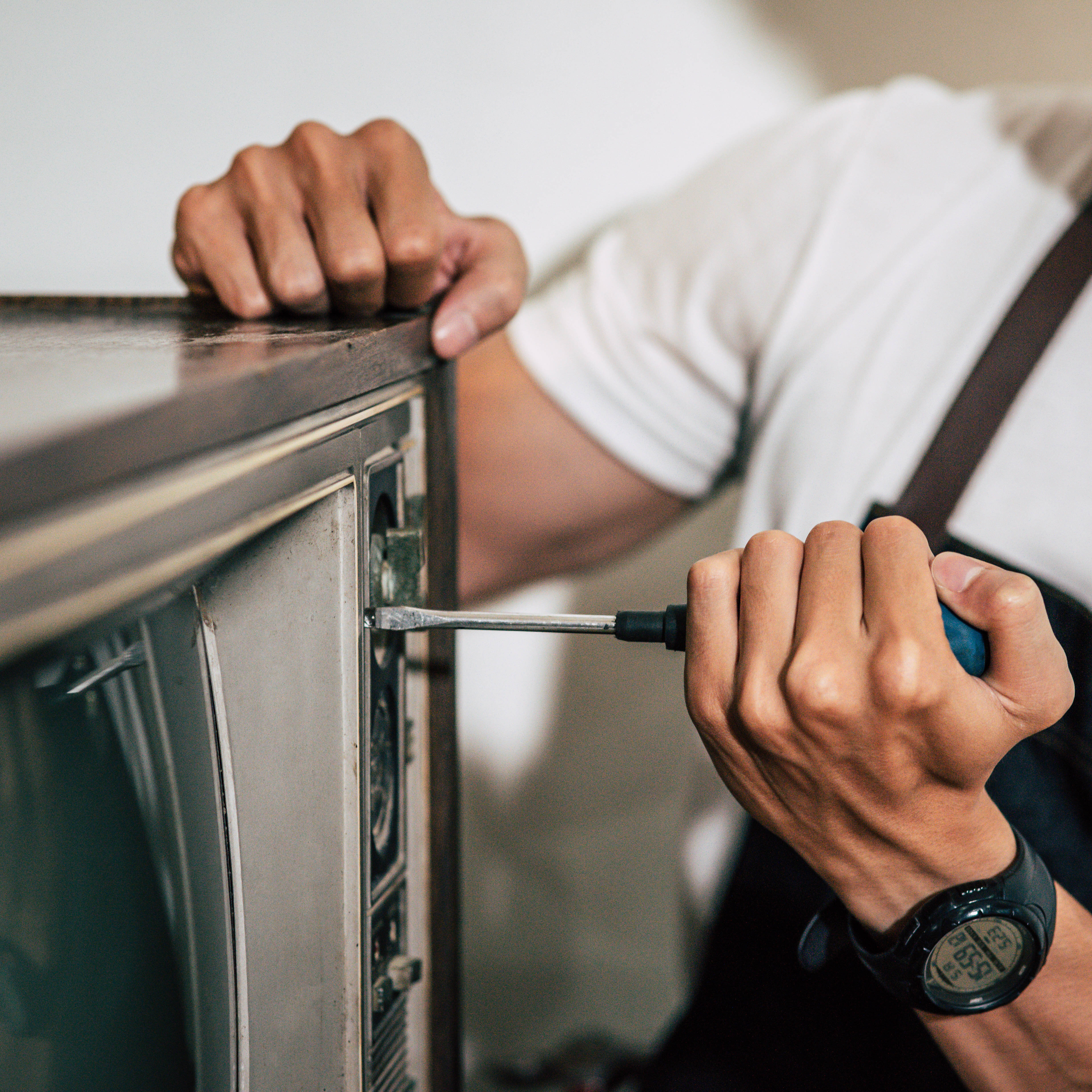Is your Bosch refrigerator not cooling like it used to? You rely on it every day to keep your food fresh and drinks cold.
When it stops working properly, it can quickly turn into a big problem. But don’t worry—you’re not alone, and there are simple steps you can take to fix it. You’ll discover why your Bosch fridge might be losing its chill and what you can do to get it back to perfect cooling.
Keep reading to save your food and your peace of mind.

Credit: smartapplianceservices.com
Common Causes Of Cooling Issues
When a Bosch refrigerator stops cooling, several factors might cause this problem. Identifying the cause helps fix the issue quickly. Many cooling problems come from simple issues that you can check yourself.
Below are the common reasons your Bosch refrigerator may not cool properly. Understanding these causes can save time and prevent food spoilage.
Power Supply Problems
A poor power supply can stop the fridge from working. Check if the plug is fully inserted into the socket. Sometimes, a tripped circuit breaker or a blown fuse cuts power. Make sure the outlet provides steady electricity.
Dirty Condenser Coils
Dust and dirt on condenser coils block heat release. This makes the fridge work harder and cool less. Clean the coils gently with a brush or vacuum every few months. Clean coils help the fridge cool efficiently.
Faulty Thermostat
The thermostat controls the fridge temperature. If it fails, the fridge might not cool at all. A broken thermostat can send wrong signals to the compressor. Test the thermostat and replace it if needed.
Blocked Air Vents
Air vents inside the fridge allow cold air to circulate. Blocked vents stop cold air from reaching all compartments. Avoid overfilling the fridge or blocking vents with food items. Keep vents clear for proper airflow.
Malfunctioning Compressor
The compressor pumps refrigerant through the system. A failing compressor can cause poor cooling or no cooling. Listen for unusual noises or constant running sounds. Compressor repair or replacement requires a professional.
Quick Fixes To Try At Home
When your Bosch refrigerator stops cooling, quick fixes can help. These simple steps save time and money. You can try them at home without special tools.
These checks often solve common problems fast. Follow each step carefully to restore proper cooling.
Check And Reset Power
First, ensure the refrigerator is plugged in securely. Sometimes, a loose plug causes power loss. Unplug the fridge for a minute. Then, plug it back in. This reset can fix minor electrical glitches.
Clean Condenser Coils
Dirty condenser coils reduce cooling efficiency. Locate the coils at the back or bottom of your fridge. Use a brush or vacuum to remove dust and dirt. Clean coils help the fridge run cooler and save energy.
Adjust Temperature Settings
Check the temperature control inside the fridge. Set it to the recommended level, usually between 37°F and 40°F (3°C to 5°C). Too high or low settings affect cooling. Adjust and wait a few hours to see results.
Clear Air Vents
Air vents allow cold air to circulate inside. Make sure they are not blocked by food containers or ice buildup. Clear vents ensure proper airflow and even cooling throughout the fridge.
Inspect Door Seals
Door seals keep cold air inside. Check for cracks or dirt on the rubber gaskets. Clean seals with warm water and mild soap. Replace damaged seals to stop cold air from escaping.
When To Call A Professional
Knowing when to call a professional is important if your Bosch refrigerator is not cooling. Some problems need expert tools and skills. Trying to fix complex issues alone can cause more damage or risk safety. Early help can save money and avoid food spoilage.
Signs Of Compressor Failure
The compressor is the heart of your fridge. If it fails, cooling stops. Listen for a humming or clicking noise that never ends. The fridge might run but stay warm inside. Warm compressor surface or frequent on-off cycles also mean trouble. These signs need a technician’s check quickly.
Refrigerant Leaks
Refrigerant is the gas that cools the fridge. Leaks cause poor cooling and frost build-up. You might notice a chemical smell near the fridge. The fridge will run longer but stay warm. Handling refrigerant needs special training. A professional must find and fix leaks safely.
Electrical Component Issues
Electrical parts control the fridge’s functions. Faulty wiring, thermostat, or control boards can stop cooling. The fridge may turn on and off randomly. Lights or displays may flicker or fail. Electrical problems need careful inspection. Call a pro to avoid shocks or fires.

Credit: www.reddit.com
Preventive Tips To Maintain Cooling
Maintaining your Bosch refrigerator’s cooling is easier with simple daily habits. These tips help keep the fridge running well. They prevent common cooling issues and save repair costs. Follow these easy steps to ensure fresh food and efficient cooling.
Regular Cleaning Schedule
Clean the fridge coils at least twice a year. Dust and dirt block airflow and reduce cooling. Wipe the interior surfaces regularly to prevent mold and odor. Remove expired food to keep the fridge fresh. A clean fridge cools better and lasts longer.
Proper Food Storage
Store food in sealed containers to keep moisture controlled. Avoid placing hot food directly inside. Let it cool first to prevent temperature rise. Keep raw and cooked foods separate to avoid contamination. Proper storage helps the fridge keep a steady temperature.
Avoid Overloading
Do not fill the fridge beyond its capacity. Overloading blocks air vents and reduces cooling. Leave space between items for air to circulate. A crowded fridge makes the compressor work harder. Light loads keep the fridge cool and save energy.
Monitor Temperature Consistently
Check the fridge temperature weekly with a thermometer. Ideal temperature is between 37°F and 40°F (3°C to 4°C). Adjust settings if the fridge is too warm or cold. Consistent monitoring helps catch problems early. Proper temperature keeps food fresh and safe.

Credit: tech-angels.ca
Frequently Asked Questions
Why Is My Bosch Refrigerator Not Cooling Properly?
A dirty condenser coil or blocked vents can stop cooling. Check and clean these parts first.
How To Fix Bosch Fridge If It’s Not Cooling?
Reset the fridge by unplugging it for 5 minutes. Also, check the temperature settings.
Can A Faulty Thermostat Cause Bosch Fridge Cooling Issues?
Yes, a bad thermostat can stop cooling. Testing or replacing it may solve the problem.
Does Frost Buildup Affect Bosch Refrigerator Cooling?
Yes, frost can block airflow and reduce cooling. Defrost the fridge to restore cold air flow.
When Should I Call A Technician For Bosch Fridge Cooling?
Call a technician if cleaning and resets don’t work or if you hear strange noises.
Conclusion
A Bosch refrigerator not cooling can cause real trouble at home. Check the basics first: power, temperature settings, and door seals. Clean the coils and clear any blockages inside. Listen for strange noises that might signal a problem. Sometimes, a simple reset fixes minor glitches.
If issues continue, contact a professional for help. Acting quickly can save your food and prevent bigger repairs. Keep your fridge running smoothly with regular care and attention. Don’t let cooling problems spoil your day.
